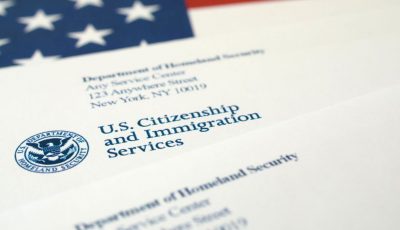Kilili to USCIS: Delay CW rejections
Delegate Gregorio Kilili C. Sablan (Ind-MP) asked U.S. Citizenship and Immigration Services—for the third time—to put off denying CW petitions, as was done in the previous fiscal year.
In an April 12, 2018, letter to Secretary of Homeland Security Kirstjen M. Nielsen, Sablan requested that USCIS delay denying CW permit applications not included in the USCIS lottery.
The CW permit cap for fiscal year 2019 is set at 4,999.
Sablan previously sent two prior letters to Nielsen dated Jan. 9, 2018 and Feb. 26, 2018, essentially requesting USCIS to “rack” permits instead of outright rejecting them. In this case, racking permits means USCIS would set aside permits not included in the lottery while retaining their chronological order, allowing the first permit submitted to first be processed if there is any change in the law.
In a previous communication with Saipan Tribune, USCIS said it would automatically reject petitions not submitted within the April 2, 2018, to April 13, 2018 window. They added that only petitions received within that time would be used for the lottery.
Sablan, in his letter, asked Nielsen to reconsider delaying the rejection of petitions to a later date.
“In light of this rapid progress and the high degree of bipartisan agreement and collaboration with the [U.S.] Executive Branch that is reflected in the U.S. Workforce Act [S.2325] I ask, once more, that you delay rejecting CW applications in excess of the number needed to fill the 4,999 permits now available for fiscal year 2019,” said Sablan, citing the current progress of U.S. Sen. Lisa Murkowsk’s (R-AK) S. 2325.
S. 2325 is a bill that seeks to reset the CW cap for fiscal year 2019 to 13,000; provide additional validity to long-time CW workers; and extend the CNMI transitional period, along with programs under it such as the CW program and the E-2C investor program, to fiscal year 2029.
Sablan simultaneously introduced H.R. 4869 to the U.S. House on Jan. 19, 2018.
“Many of the recommendations offered by your staff, including the anti-fraud fee and an e-verify requirement were incorporated into the amendment in the nature of a substitute [to S.2325] approved by the [U.S.] Senate Committee on Energy and Natural Resources at a mark-up on March 8, 2018. The bill is now on track for consideration by the full Senate,” pointed out Sablan.
He added that in fiscal year 2018, USCIS was able to delay actions due to “uncertainty regarding the cap.”
Sablan noted that on May 25, USCIS announced that they have received enough applications to fill the maximum possible number of CW permits seven months prior to announcing the cap on Nov. 22, 2018.
“…And only then were applications rejected for the period prior to May 25,” said Sablan. “That would be the wise course of action now, too. Please, allow time for [U.S.] Congress to complete its work on the Northern Mariana Islands U.S. Workforce Act before engaging in wholesale rejection of permit applications,” added Sablan.
Nielsen’s response
Nielsen, in response to Sablan’s Jan. 9, 2018, letter, said that USCIS already takes rejections in consideration when determining the amount of CW applications received before finally announcing that they have enough petitions.
“In determining how many CW petitions to accept for filing under the numerical cap, USCIS already makes allowance for the fact that some filed petitions will be denied and some approved petitions will not be used. In this regard, revoked and denied permits were already take into account,” she wrote Sablan.
Nielsen has yet to respond to Sablan’s other letters.



























